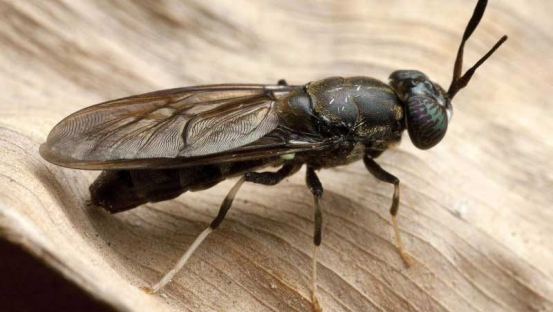×
The Standard e-Paper
Fearless, Trusted News

There is some good news for livestock farmers. A top international research centre in Kenya has been conducting a study on an insect that may change the fortunes of fish and poultry farmers by significantly reducing the cost of feeds.
This study involves the use of larvae of an insect known as Black Soldier Fly (BSF) which would potentially substitute ingredients used as sources of protein and energy in feeds.